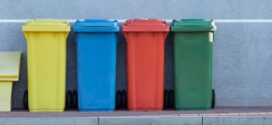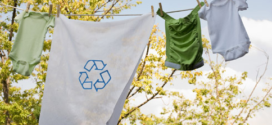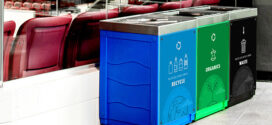
Boost Your Recycling Efforts
Due to excessive human consumerism, we have a massive global problem. Over the decades, the accumulation of so much garbage is seriously straining the natural environment’s capacity to maintain a healthy balance in the global biosphere.
While scientists, governments, companies, and organizations strive to alleviate the global garbage problem, we, the ordinary people, must do our part. Fortunately for us, it doesn’t take a lot. By recycling the stuff that supposedly goes into waste disposal, we can help save the Earth. Doing so allows us to improve the latest recycling statistics, reduce garbage, conserve landfill space, and enjoy all sorts of environmental benefits.
Thus, before considering waste disposal, let’s put recycling ahead of the track.
Improving Your Recycling Activities
Recent recycling statistics as per the US Environmental Protection Agency (EPA) shows that recycling and composting rates in the country have increased to 35% in 2017, decreasing noticeably to 32.1 percent in 2018 due to the increasing volumes of garbage we dumped into the environment. Still, this is an impressive figure considering that in 1960, just a little over 6% of municipal solid waste is recycled.
The increase in recycling from 1960 to the present is a clear indicator that we can indeed do a recycling revolution. So how do we, as ordinary citizens, make the recycling revolution more effective at a personal, household, or business level? Here are some tips on how to do it:
Reduce your usage of recyclable stuff
Ironically, the most effective way to improve the current recycling statistics is to reduce your usage of everyday stuff – including recyclable items. Make an inventory of the things you often use and ask yourself if they’re necessary. Do you really need to buy bottled water when you can simply refill your metal canteen? Do you really need to have those fruits packed in plastic when it could be placed in paper bags? Do you really need a Styrofoam cup when you can just bring your own mug and ask the coffee barista to fill it?
Use brand-new paper only when necessary
In most cases, you only need a hard copy of a document if formality, legality, or proper documentation is required. For office memos, drafts, and notes, you can use the blank side of used sheets of paper. Even better, go digital as much as possible by taking advantage of emails, chats, e-books, video conferencing, and other digital technologies.
Reuse plastic bags
Keep the plastic bags that you use to carry your groceries, and use them for your next grocery run. You can also use plastic bags for other purposes—wet pouches, vomit bag, trash bin lining, and so much more. Plastic bags are surprisingly tough, so you can reuse them several times before relegating them to waste disposal.
Use a recycling app
Install a recycling app on your phone or computer. Recycling apps tell you which ordinary household items can be recycled, how to repurpose such items, the locations of recycling centers in your area, recycling programs in your location, and more. Popular apps include Earth 911, Recycle Nation, Gimme 5, and Gro Recycling.
Place recycling bins at conspicuous places
One of the reasons people don’t recycle is that they don’t know where the recycling bins are. Thus, make sure your recycling bins are easily accessible and obvious. Place them in common areas such as the kitchen in your home, or the hallway and pantry in your office. Clearly label them—or assign them a different color—as bins for recyclable items.
Use printed recycling reminders
No matter how much you instill the concept of recycling to people, they will most likely forget your advocacy. Instill your advocacy in them by using printed reminders. For example, if you’re selling goods, you can put a “Please reuse me” on your product’s packaging. Another idea would be installing an eye-catching custom-printed poster on your office’s mess hall that reminds the team about the importance of recycling. Perhaps you can also put cool, artsy cards that have recycling messages on your dining table to remind the household to recycle stuff.
Fit recycling into your lifestyle
To do smart recycling, you need to actively be conscious of recycling. It has to be incorporated into everything you do. For example, establish a schedule to deliver your recyclable waste to your local recycling center. Bring your own reusable utensils, mug, and water with you. Ask the fast-food counter cashier to pack your food in your reusable lunch box rather than the store’s packaging.
Plant your own food supply
If you have a yard, a rooftop, or even extra space outside your home, you can use that space to grow your own fruits and vegetables. Many crops are easy to grow, and there are horticulture techniques that allow you to raise your own fruit or vegetable garden in any condition. By growing your own food supply, you minimize trips to the grocery store. And subsequently, you minimize the amount of packaging needed for your food. As a bonus, you get fresh, healthy produce without spending a cent.
As you can see, recycling doesn’t need you to do anything expensive, drastic, or monumental. For us, it just requires a change of mindset and lifestyle accompanied by some smart and sensible decisions to save the planet.
 WhosGreenOnline.com Your Online Magazine and Directory for Green Business, Product, Service and News!
WhosGreenOnline.com Your Online Magazine and Directory for Green Business, Product, Service and News!







I liked how you mentioned that you should keep plastic bags and reuse them to be better at waste management. My wife and I are wanting to become more eco-friendly and we were wondering how we could reuse things better. I’ll be sure to tell her that we should reuse plastic bags to get better at waste management.